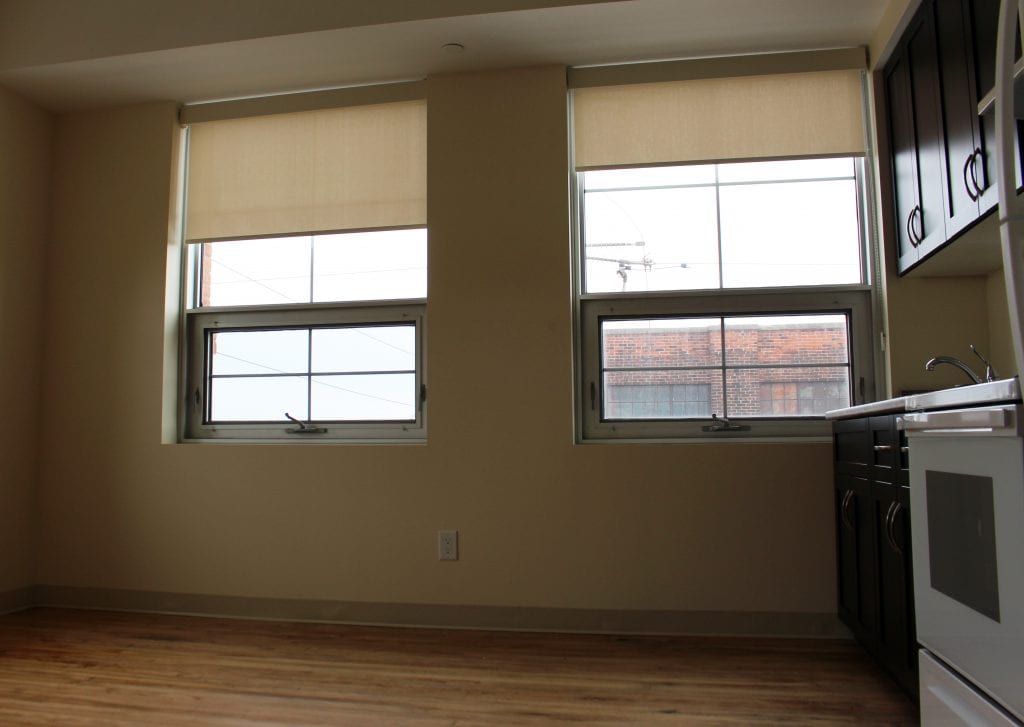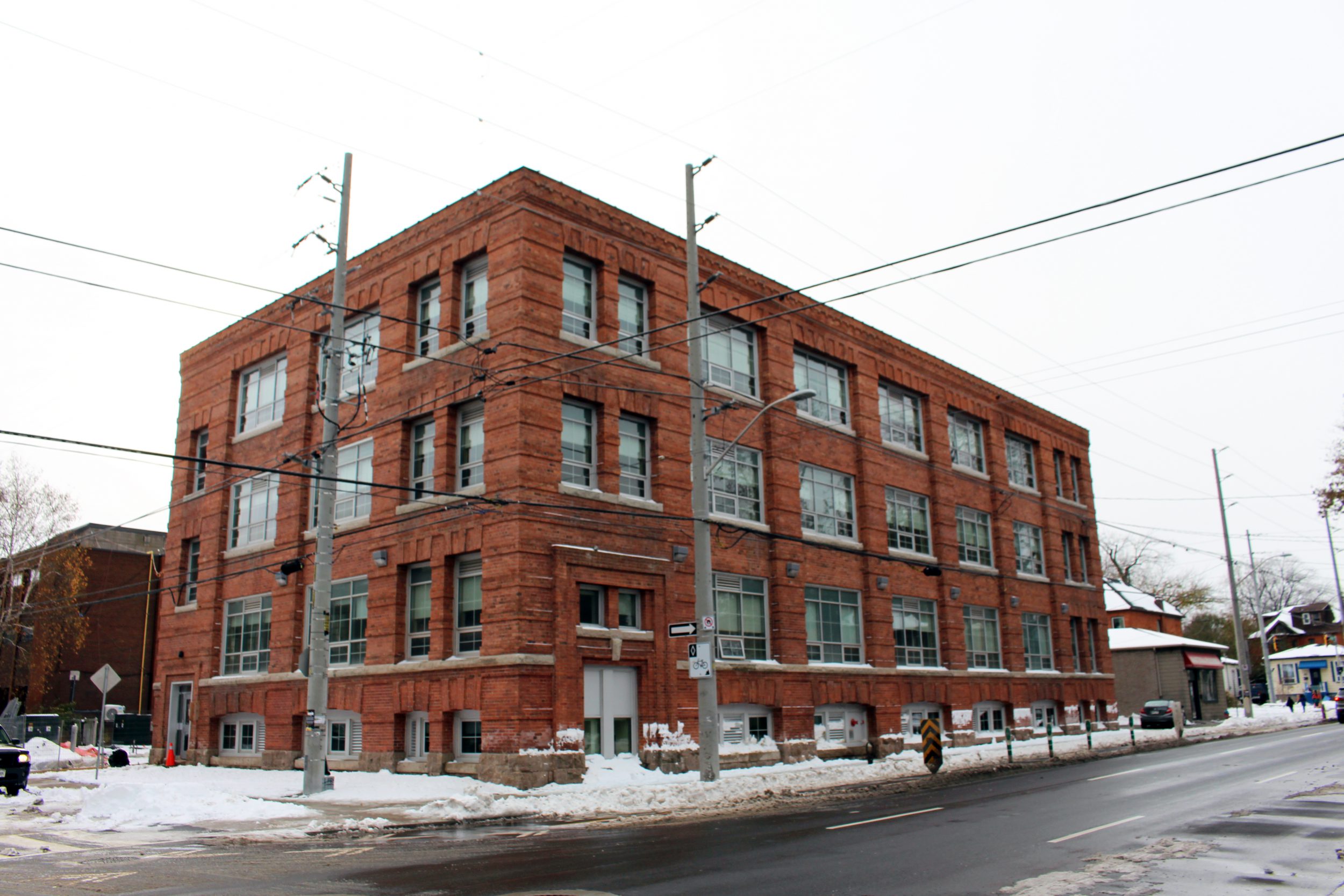Travis Lickman is very excited to move into his new home.
His one-bedroom in a former clothing factory in downtown Hamilton, Ont. has hardwood floors, large windows and sits on a corner of the building. “Nobody above me and nobody beside me,” he says. “That’s really nice.”
You may unsubscribe from any of our newsletters at any time.
And his rent will be geared to his income.
Lickman is among 35 people moving into a new subsidized apartment building in Hamilton’s downtown core. Owned and operated by the Good Shepherd, a human and social services provider in Hamilton and other cities, the former factory was converted into one-bedroom rental units for $11 million. The goal is to provide homes to an even mix of single men and women.
Housing is recognized as a human right across multiple jurisdictions, including Ontario.
But according to the Canadian Rental Housing Index, average monthly rent and utilities in the province is just over $1,100 — an amount that increases depending on which city you live in. Waiting lists for subsidized housing grow while too few units are made available. Settlement.org estimates that in some areas, people may wait as long as seven to 10 years to get access to affordable housing. A recent Hamilton Spectator series found that 15,400 people in the city are waiting for subsidized housing spots to open up.
Non-profit organizations like Good Shepherd are working to meet the need across Ontario. But they face their own challenges in opening up new units. Non-profits are impacted by the same government funding cuts that limit municipal spending on housing.
More on Broadview: Toronto’s rental market is another nightmare for refugees
Good Shepherd had been using the onetime factory as a food bank and warehouse — though the organization had other plans for it. “It was always sort of in our mind that we would convert it into housing,” says Alan Whittle, director of community and government relations at Good Shepherd. That arrangement was made possible when the food bank and warehouse moved into a former car dealership down the street in 2014.
But the project was a challenge. Whittle says Good Shepherd applied for provincial and federal funding administered by the city — $150,000 per unit — in 2013, but waited two years for approval. The budget for the renovations was originally significantly lower than the eventual $11-million price tag because of a “terrific explosion in construction costs,” according to Whittle. That left Good Shepherd with a significant gap left in capital funds needed to complete the project — one eventually filed by an undisclosed donor who provided $1.6 million.
Nancy Worth, an assistant professor in geography and environmental management at the University of Waterloo, says one of the issues impacting the availability of affordable housing across Canada is that support programs are focused on new buyers, rather than on renters. “They’re focusing on new construction, buying homes and encouraging young people and people of all ages to buy,” she says. “It is a way of supporting the wider economy, but there’s a huge gap in terms of an accessible rental market.”
Housing is crucial to helping people stabilize their lives. “The most important thing that you can do for somebody who (is) living in poverty, (and) may have mental health issues or addiction issues, is to have a decent place to live,” says Whittle. “It gives them the base to say, ‘okay, I don’t have to worry about my housing anymore.’”
Lickman, who is currently living in a Good Shepherd-run supportive housing unit, says he was on opiates for a long time following a motorcycle accident. After he stopped taking them, he found support through Good Shepherd. But he has other concerns, like making his child support payments. “It’s going to be able to get me back on my feet,” he says of moving into his new apartment.

Worth says that while projects like Good Shepherd’s are important, they are also a stop-gap measure. “If we arranged our housing system differently at a federal and provincial and local level, we could really have much more protections and really value accessible and affordable housing rather than having Good Shepherd pick up the slack in their small, but really helpful way,” she says.
The National Housing Strategy, a plan announced by the federal Liberals in 2017, does include funding for affordable housing initiatives. However, according to the Spectator, the parliamentary budget officer has criticized the plan for “largely” maintaining funding at previous levels.
While more capital grants may help to get more housing built, Whittle notes there are other ideas, among them loosening rules that would allow organizations like his to reinvest equity they already have in buildings, or offering charity bonds where interest accrued is returned as a charitable receipt.
Good Shepherd’s new building should be fully occupied by Dec. 1. Whittle knows the project is only a drop in the bucket compared to the need in Hamilton — but it is something. “The 35 units that we have built are going to make a difference for at least 35 people,” he says. “And sometimes that’s enough.”
Broadview is an award-winning progressive Christian magazine, featuring stories about spirituality, justice and ethical living. For more of our content, subscribe to the magazine today.














